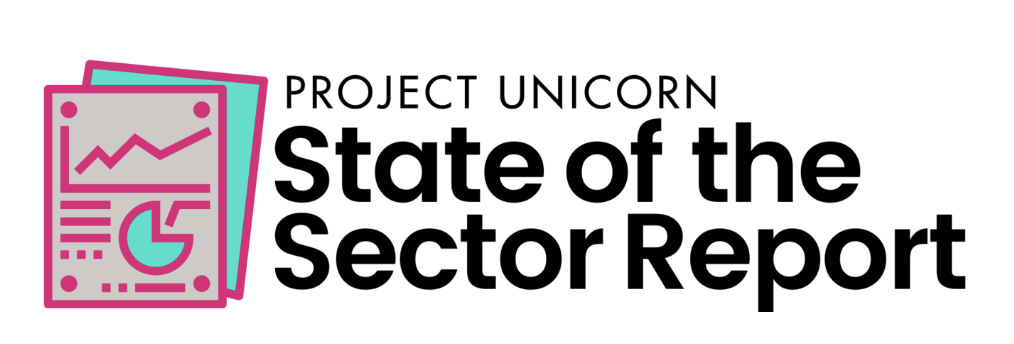School Systems Lack Capacity to Support Data Driven Decision Making, National Survey Finds
Key Points
-
While school systems desire to engage in data-driven decision-making, they lack the capacity for robust implementation.
-
Data can be a powerful tool for education improvement, but school systems need help to ensure that educators and administrators have access to timely, accurate, and actionable data.

By: Susan M Bearden
Data can be a powerful tool for driving educational equity. Whether used by a classroom teacher to improve instruction, by school administrators to identify students at risk for dropping out, or by district, administrators to identify students with the potential to succeed in advanced classes, data can be leveraged to support students in many different ways. A 2022 survey by AASA and the Data Quality Campaign found that 98% of superintendents feel that if they had better access to information, they would be more confident in their abilities to make decisions for their district. However, the 2022 Project Unicorn State of the Sector Report (SOTS) finds that although districts are swimming in valuable data, they are often unable to make use of it.
The Project Unicorn State of the Sector Report (SOTS), informed by the results of the annual School System Data Survey (SSDS), is the first of its kind analysis of K12 school system capabilities and infrastructure for leveraging education data. This includes school system readiness to implement data interoperability, defined as the seamless, secure and controlled exchange of data between applications. The 2022 report, which analyzed the responses of 187 Local Education Agencies (LEAs) from the spring of 2022, evaluates school system capabilities in 6 domains: Leadership and Vision, Governance, Technology and Infrastructure Landscape, Procurement, Implementation Fidelity, and Impact on Educational Environment.
While school systems desire to engage in data-driven decision making, they lack capacity for robust implementation.
Susan M Bearden
The report finds that while school systems desire to engage in data-driven decision-making, they lack the capacity for robust implementation. The foundational capacities needed to support quality data-driven decision-making fall into multiple categories:
- Leadership capacity: The SSDS found that many school system leaders are not familiar with data interoperability standards and how they can be leveraged to benefit staff and students. They may have an idea of the kinds of data that would help them make better leadership decisions, but don’t know what questions to ask. They also may not understand the human and technical infrastructure needed to make access to that information possible. School system leaders need guidance on how they can support the development of systems and processes that will provide them access to the data they need.
- Data engineering capacity: The survey found that larger and more urban school systems tended to score higher on the survey than smaller and more rural ones, including private schools. Larger school systems tend to have commensurately larger budgets and staff, making it more likely that they have the technical skill sets required to manage database infrastructure, such as an Operational Data Store (ODS) or a data warehouse. Many smaller school systems are looking to platform-as-a-service (PAAS) options to help fill the gap, such as those offered by some third party vendors or by regional education service agencies.
- Data analytics capacity: Not surprisingly, school systems that reported having data teams (defined as employees who analyze, explore, and interpret data to support program improvement, and might hold titles like Data Systems Manager or Director of Analytics) scored significantly higher across all survey domains. Unfortunately, there is a severe shortage of data analysts in the K12 space and a high turnover rate among data professionals who can make significantly higher salaries in the private sector. K12 policymakers and support organizations need to help school systems build internal data analytics capacity and develop support systems to encourage skilled data professionals to remain in the field.
- Financial capacity: The survey found that despite the recent influx of ARP ESSER dollars, funding continues to be a challenge for implementing data system modernization. Large-scale data projects require both an upfront financial investment in technical and human infrastructure and careful planning for long-term sustainability. Like other aspects of technology infrastructure, financial sustainability is key. It is incumbent upon state and federal policymakers to provide dedicated funding for data modernization projects.
- Planning and project management capacity: The survey found that school systems need assistance with data privacy and interoperability planning, as well as developing procurement plans and processes. Data modernization initiatives are complex, multi-year projects that require buy-in and support from multiple departments – including school system leaders and board members, curriculum and instruction supervisors, information technology teams, business officers, school administrators, and classroom teachers. As with many large-scale initiatives, the greatest challenges to successful implementation are often human.
- Data-informed pedagogical capacity: In addition to having access to timely, relevant data, educators need professional learning around data-informed instruction and TIME to collaborate with colleagues to implement appropriate pedagogical practices. Without these factors in place, data-informed instruction will not become a reality.
While there is much work to be done to help school systems make the most of their data, Project Unicorn is working to make this a reality. The 18 organizations which make up the Project Unicorn coalition collaborate to provide free support and resources for school systems and vendors looking to modernize their data infrastructure and implement data interoperability. School systems who sign the Project Unicorn School Network Pledge receive free 1:1 technical assistance and join a community of school systems that want to make better use of their education data. Although only about 20% of the districts who completed the 2022 School System Data Survey had signed the Project Unicorn Pledge, pledge signatories scored higher than non-pledge signatories in all domains and reported more advanced data practices and capabilities. Being part of the Project Unicorn district community helps districts be better prepared for the challenges of data interoperability, privacy and security.
By aligning to open data standards and making it easier for educators to access their previously siloed data, they can support better student instruction and institutional decision-making. The progress we have made as a coalition has been significant, but as the State of the Sector Report results indicates, there is much work to be done. The Project Unicorn coalition is working to ensure that the promise of education data is not just a myth, but an everyday reality for every educator and student in this country.
As the Director of Digital Programs for InnovateEDU, Susan leads Project Unicorn, a nationwide coalition of 16 organizations seeking to promote and support the adoption of open data interoperability standards in the K12 sector.







0 Comments
Leave a Comment
Your email address will not be published. All fields are required.